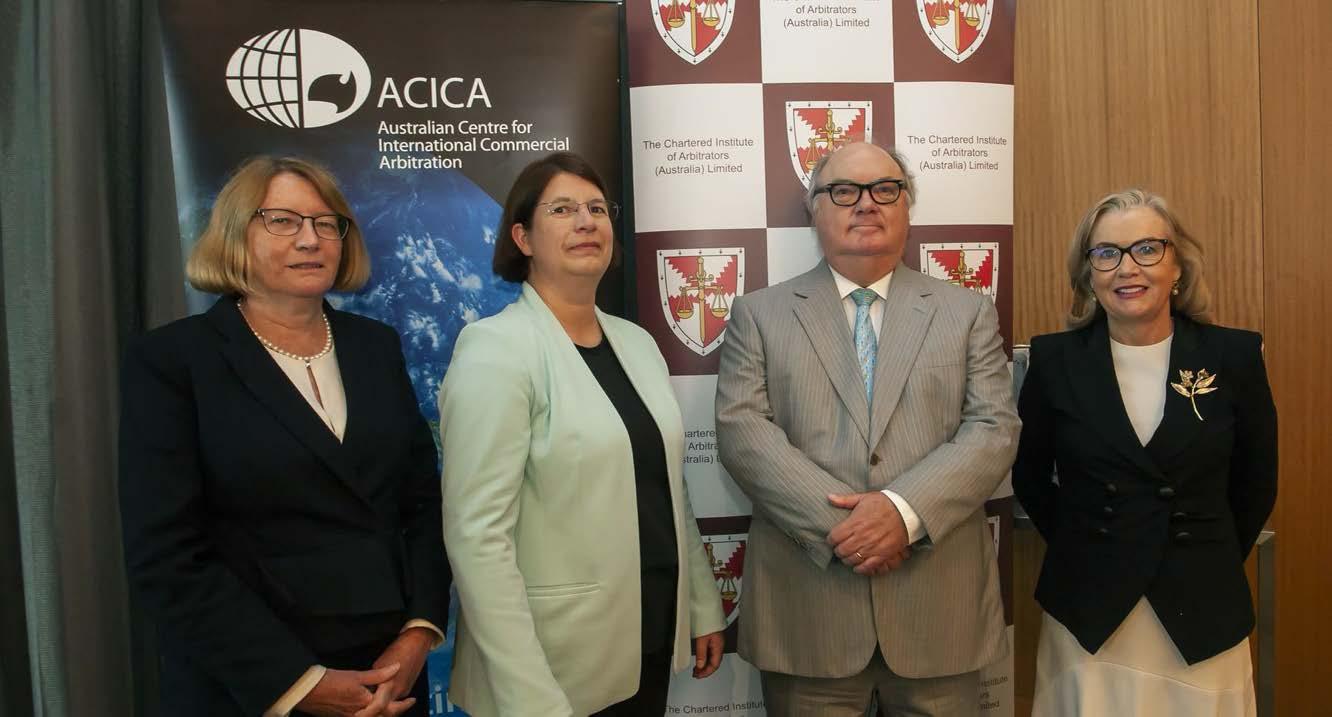
28 minute read
For International Arbitration: 2010 To 2019
L-R: The Hon Chief Justice Catherine Holmes, Chief Justice of the Supreme Court of Queensland, Brenda Horrigan, President of ACICA, The Hon Justice Patrick Keane, Justice of the High Court of Australia & Caroline Kenny QC, President of CIArb Australia
Taking The Contract Seriously – Changing Perspectives On The Prospects For International Arbitration: 2010 To 2019*
Advertisement
In October 2010, I addressed the Australian Financial Review's International Dispute Resolution Conference in Sydney1. I discussed the extent of the scrutiny exercised by Australian courts over the conduct of arbitrations and the enforcement of awards, the overarching concern being that the intensity of judicial review of arbitration awards "necessarily determines the utility of the arbitration process"2 in this country and judicial review with an eye finely attuned to the detection of error is not helpful. I suggested that, while judicial supervision of arbitration in Australia in relation to adequacy of reasons and matters of process had historically tended to impose the strict standards of decision making required of judges, our courts were now taking a more liberal and pragmatic approach recognising that the decisionmaking power of an arbitrator derives from the voluntary agreement of the parties to the dispute rather than the sovereign power of the state. Because the decision-making authority of the arbitrator is rooted
* Keynote Address to ACICA Conference, Brisbane, 18 November 2019. 1. See Keane, "Judicial Support for Arbitration in Australia" (2010) 34 Australian Bar Review 1. 2. Antoine, "Judicial Review of Arbitral Awards" (1999) Dispute Resolution Journal 23 at 24.
in the consent of the parties whose interests are in a just, quick and cheap decision, and because arbitration is a private process in which the arbitrator's decision affects only the parties to the dispute, the special considerations that inform the standards applied in judicial decision-making are not in play in arbitrations. Accordingly, there is no occasion for the strict judicial supervision that characterises the exercise of the judicial power of the state. I suggested that judicial acceptance of the significance of the new approach was now settled by the then recent decision of the Court of Appeal of the Supreme Court of New South Wales in Gordian Runoff Limited v Westport Insurance Corporation3 . Those who were present in the audience back then in 2010 must have thought, shortly thereafter, when the High Court dealt with an appeal from the New South Wales Court of Appeal in Gordian Runoff, that listening to me bloviate on this subject had been a complete waste of their time4. That is because, in Gordian Runoff, the High Court overruled the New South Wales Court of Appeal. Reasserting the strong view of the supervisory role of the courts with respect to arbitrations, the plurality in the High Court observed that5: "[I]t is going too far to conclude that performance of the arbitral function is purely a private matter of contract, in which the parties have given up their rights to engage judicial power, and is wholly divorced from the exercise of public authority." The Court went on to hold that the reasons provided by the arbitrators in that case were so inadequate as to constitute an error of law on the face of the record6; and the order of the primary judge setting aside the award was reinstated7 . But you can't keep a good idea down; and within two years of Gordian Runoff, the liberalising tendency reasserted itself in TCL Air Conditioner (Zhongshan) Co Ltd v Judges of the Federal Court of Australia8. In that case, it was argued that the jurisdiction conferred on the Federal Court to enforce an award to which Article 35 of the UNCITRAL Model Law applied is incompatible with ChIII of the Commonwealth Constitution. It was argued that because, under Article 35, the Federal Court was unable to refuse to enforce an arbitral award on the ground of error of law, the power to enforce such an award either impermissibly conferred the judicial power of the Commonwealth on the arbitral tribunal, or undermined the institutional integrity of the Federal Court, as the supervisor of that tribunal. The High Court unanimously rejected these arguments, drawing a distinction between the making of an arbitral award, and proceedings in court for its enforcement. The making of an award is not an exercise of judicial power, because "the existence and scope of the authority to make the arbitral award is founded on the agreement of the parties"9. The plurality said10: "[T]he conclusion that an arbitrator is the final judge of questions of law arising in the arbitration does not demonstrate that there has been some delegation of judicial power to arbitrators. The determination of a dispute by an arbitrator does not involve the exercise of the sovereign power of the State to determine or decide controversies." The plurality also rejected the institutional integrity argument, saying that11: "The defining characteristic of a court upon which TCL fastened was judicial independence, which was said to be 'distorted' by the absence of scope for substantive review of an award for error of law when the Federal Court determines the enforceability of an award under the IA Act. The submission fails to take into account the consensual foundation of private arbitration. This failure underpinned TCL's misunderstanding of the relationship between private arbitration and courts." The liberalising and pragmatic approach of the judiciary was confirmed most recently in the High Court's decision in Rinehart v Hancock12. In that case, the principal issue on appeal was whether the claims raised by the appellants – that they were not bound by an arbitration clause in each of the deeds in question because their consent had been procured by misconduct on the part of some of the respondents so that the deeds were of no effect – were within the scope of the arbitration clause contained in the deeds. The principal deed provided relevantly that in the
3. (2010) 267 ALR 74; [2010] NSWCA 57. 4. See Westport Insurance Corporation v Gordian Runoff Ltd (2011) 244 CLR 239. 5. Westport Insurance Corporation v Gordian Runoff Ltd (2011) 244 CLR 239 at 261-262 [19]-[20] 6. Westport Insurance Corporation v Gordian Runoff Ltd (2011) 244 CLR 239 at 271 [55]-[57] 7. Westport Insurance Corporation v Gordian Runoff Ltd (2011) 244 CLR 239 at 274 [72] 8. (2013) 251 CLR 533. 9. TCL Air Conditioner (Zhongshan) Co Ltd v Judges of the Federal Court of Australia (2013) 251 CLR 533 at 555 [31]-[32]. 10. TCL Air Conditioner (Zhongshan) Co Ltd v Judges of the Federal Court of Australia (2013) 251 CLR 533 at 575 [107]. 11. TCL Air Conditioner (Zhongshan) Co Ltd v Judges of the Federal Court of Australia (2013) 251 CLR 533 at 573 [101]. 12. 12 [2019] HCA 13.
L-R: Matthew Gearing, Chairperson of the Hong Kong International Arbitration Centre, Caroline Kenny QC, President of CIArb Australia, Brenda Horrigan, President of ACICA, Paula Hodges QC, President of the London Court of International Arbitration & Fuyong Chen, deputy secretary-General of Beijing International Arbitration Center
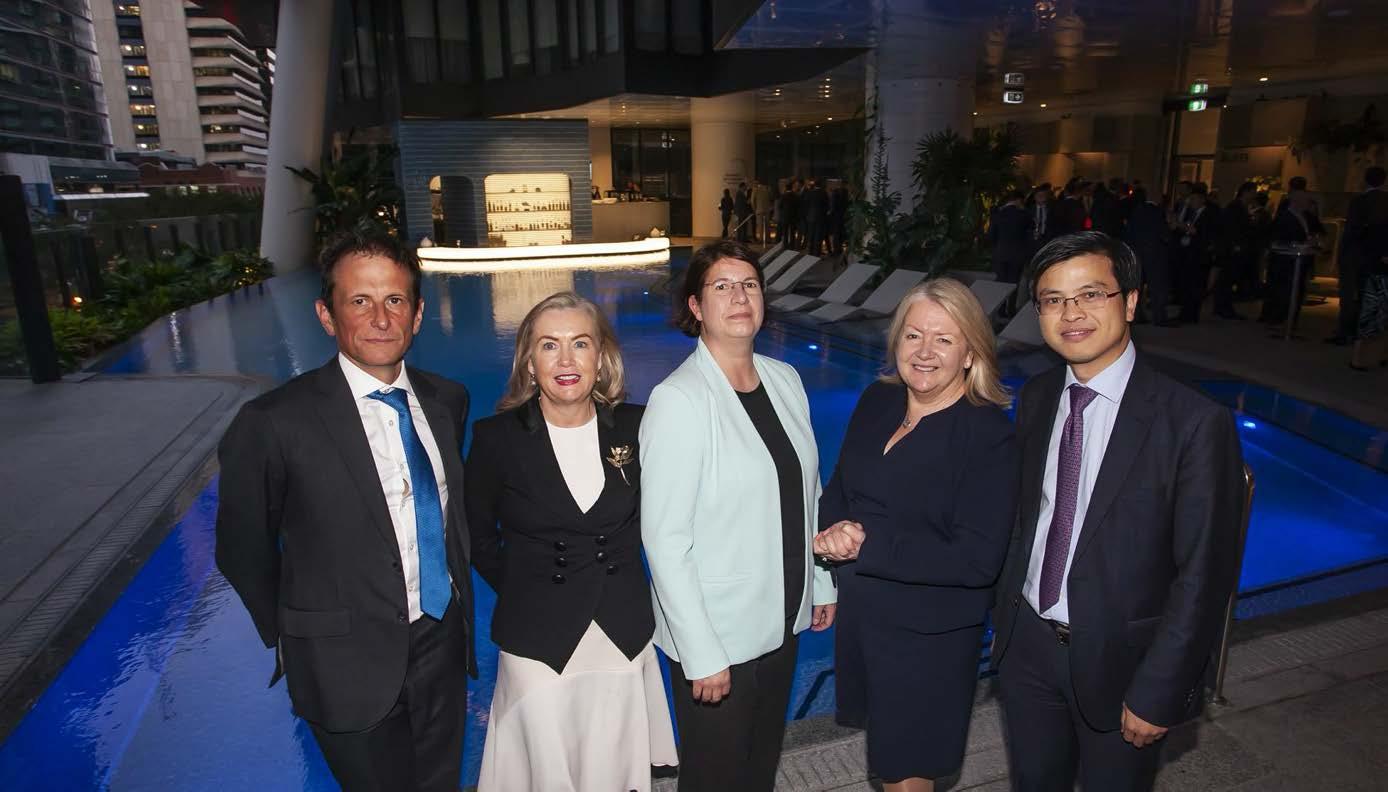
event "that there is any dispute under this deed", there is to be a confidential arbitration of the dispute. The Federal Court had held that the phrase "any dispute under this deed" should be given a liberal, not a narrow, interpretation13. In the High Court, more cautiously perhaps, the plurality, applying "orthodox principles of interpretation", held that in the context of the evident importance to the parties of maintaining confidentiality in the resolution of any dispute between them relating to the deed14, it was "inconceivable" that the appellants' claims as to the invalidity of the deed should not also be the subject of confidential dispute resolution15. The claims of invalidity were therefore held to be within the scope of the arbitral clause. The High Court did not go so far as to endorse the view of Lord Hoffmann in the House of Lords in Fiona Trust & Holding Corporation v Privalov16 that a claim that the arbitration clause is not binding is to be presumed to be covered by the agreement to arbitrate disputes under the agreement. But the High Court's approach is generally likely to lead to outcomes that are consistent with Lord Hoffman's approach in Fiona Trust17 . So far as the political branches of state power are concerned, it is of more than passing interest that in TCL, the Attorneys-General of the Commonwealth, and the States of Queensland, South Australia, Victoria, Western Australia and New South Wales, intervened in the High Court to support the more liberal approach18. The support of Australian governments for arbitration is clear and strong. The support of Australian law makers for arbitration at State and Commonwealth levels has been so unequivocal and consistent over the last three decades that privity to the arbitration agreement is not always essential to compel a person to participate in arbitration or to be bound by its result. While there is a theoretical
13. Hancock Prospecting Pty Ltd v Rinehart (2017) 257 FCR 442 at 489 [166]-[177], 496 [193].
14. Rinehart v Hancock Prospecting Pty Ltd [2019] HCA 13 at [32]-[33] and [46]. [2019] HCA 13 at [48]. 16. [2007] 4 All ER 951. 17. Fiona Trust & Holding Corporation v Privalov [2007] 4 All ER 951 at 958 [13]. 18. It may also be noted that ACICA and the Institute of Arbitrators and Mediators and the Chartered Institute of Arbitrators were given leave as "amici curiae" to make submissions to the same effect.
19. Park, "Non-Signatories and the New York Convention" (2008) 2 Dispute Resolution International 84 at 86.
tension between maintaining arbitration's consensual character and maximising an award's practical effectiveness by binding related persons19, as was noted in Rinehart, in Australia as elsewhere20, there has been a statutory expansion of the meaning of "party" to include "any person claiming through or under a party to the arbitration agreement". By reason of the statutory extension of "party" in the International Arbitration Act 1974 (Cth) and in our domestic Commercial Arbitration Acts, a non-signatory to an arbitration agreement may be bound by the arbitral award. In addition, joinder mechanisms are now contained in leading arbitral rules, including clause 15 of the rules of arbitration of the ACICA Rules. This strong legislative support for arbitration means that an arbitrator, in deciding questions of joinder, has the flexibility to assess the legal, factual and technical connections between the pending arbitration and the effect of granting the joinder21. The decision-maker may have regard to various factors, such as whether the dispute arises from the same transaction; whether there is a common question of law or fact; or whether the third party to be joined is an indispensable party for the purpose of awarding complete or effective resolution22. While the contractual basis of the arbitrator's jurisdiction remains of central importance, the sophistication of modern commerce means that unless some non-parties to the contract are joined in arbitration, the practical effectiveness of the arbitral award might seriously be undermined. In this respect, it is not surprising that the "law places limitations on the autonomy of the will of the parties"23 consistently with the view that the simple "ideal of arbitration is freedom reconciled with law"24 . Twenty years ago, it was a matter of grave concern to those responsible for the administration of the justice system in this country that parties to commercial litigation were making excessive demands on the time and resources of the court system to the disadvantage of other litigants. Now those demands on the justice system have been eased as more and more commercial entities vote with their feet in favour of arbitration. That is partly, no doubt, because wealthy litigants opt out of the public system of dispute adjudication in which they are obliged to stand in the queue with other litigants because they can afford to do so. To the extent that the exercise of this preference reduces the demands on the stretched resources of the public system of justice, that is a good thing. No doubt our lawmakers find the easing of the fiscal burden very attractive. But, of course, the large corporations who choose arbitration as their preferred mode of dispute resolution are not acting out of a sense of public duty. The finality of resolution so desired by those engaged in international trade and commerce is more effectively secured by arbitration than litigation because of the absence of the hierarchy of appeals, and the attendant uncertainty and delay, which characterise the court system. There is also the benefit of easier enforceability of awards under the New York Convention. And perhaps more importantly, there is the abiding importance of privacy25. Large commercial parties are, no doubt, strongly attracted by the privacy of arbitration, both with respect to the issues involved in the proceedings themselves and with respect to the reasons provided for in the award. In arbitration there are no representatives of ASIC, the ACCC or the Commissioners of Taxation or State Revenue in the back of the hearing room. Nor are there any shareholders, and for management whose deficiencies may fall under scrutiny in the course of dispute resolution proceedings, that can be a careersaving advantage. Of course, the other side of the privacy coin is that there is a lack of transparency around the resolution of disputes that may affect the public interest. That may be a matter of legitimate concern; but it is not a concern that has been thought to be sufficiently serious to arouse the concern of legislatures. This Institute and its members and ACICA should be astute to ensure that there should be no reason for that state of affairs to change. Some commentators have expressed the concern that the preference of commercial parties to resolve their disputes by arbitration may, in the longer term, impede or stultify the development of our commercial law. I am sceptical about the strength of this argument.
20. Arbitration Act 1996 (UK) s 82(2). 21. Smith, "Comparative Analysis of Joinder and Consolidation Provisions Under Leading Arbitral Rules" (2018) 35(2) Journal of International Arbitration 173 at 194. International 29 at 31-32.
23. Beatson, "International arbitration, public policy considerations, and conflicts of law: the perspectives of reviewing and enforcing courts" (2017) 33 Arbitration International 175 at 175. cited in Beatson, "International arbitration, public policy considerations, and conflicts of law: the perspectives of reviewing and enforcing courts" (2017) 33 Arbitration International 175 at 175.
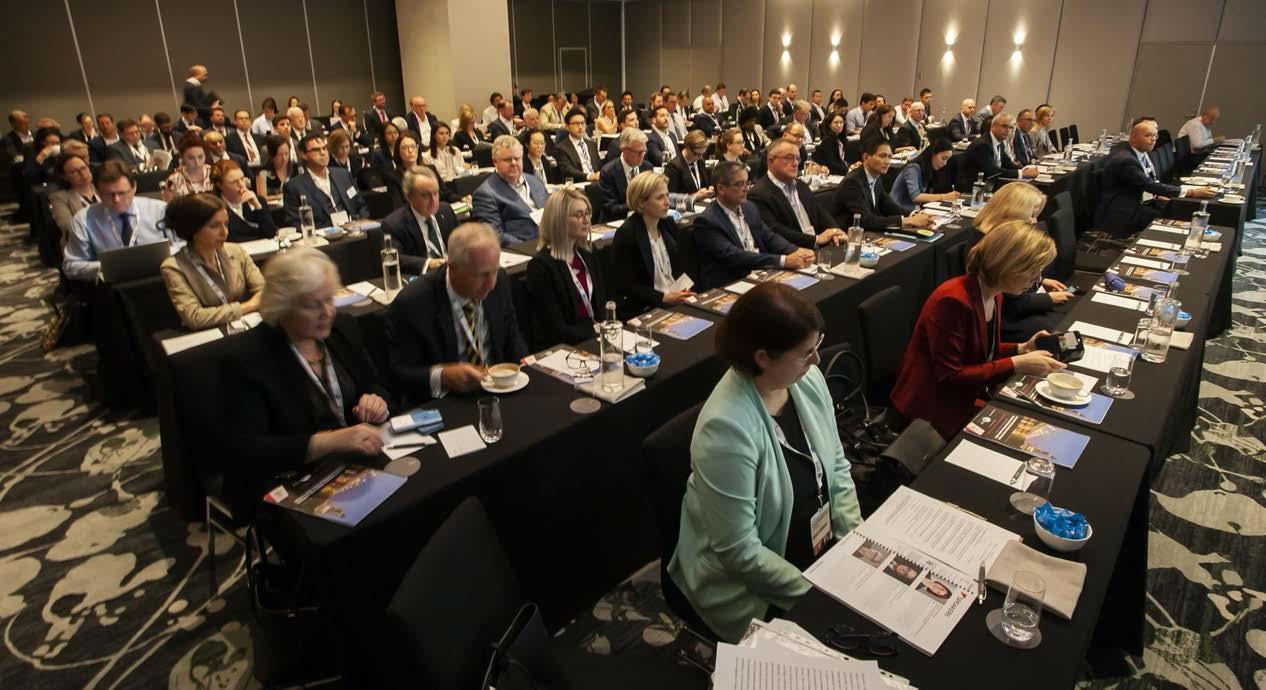
Courts and legislatures have for several decades been focused upon devising remedies directed at the power imbalance between large corporations and their consumers. Concerns associated with consumer protection have been powerful drivers of decisions of our courts over this time; but it should hardly be surprising that developments of the law with an eye to consumer protection hold little interest or attraction for corporations engaged in large scale business on an international stage in relation to the regulation of their dealings with other equally well-resourced and sophisticated parties. And equally, the development of our commercial law in relation to consumer protection loses little by reason of the privacy of the arbitration process because the nature of the parties and their disputes raise such different issues. As to the need to maintain high standards of arbitral decision making, it is, I suggest, precisely because we take seriously the notion that the parties have agreed to be bound by the determination of their dispute by the arbitrator, we should never make the mistake of attributing to the parties a willingness to be bound by a decision other than one in accord with the law which has been agreed to be the governing law of the arbitration. No one should suppose that quality of decision making is of less than crucial importance to the parties who have agreed to look to the arbitrator for justice. Even more obviously, persons who are bound by awards by virtue of the statutory extension of the effect of an arbitrator's decision cannot be expected to view with equanimity the binding authority of an unjust decision. And ultimately it is a matter of concern to the lawmakers of states that seek to provide an attractive seat for arbitration. We would all agree, I think, that a deliberate decision on the part of the arbitrator not to apply the agreed law should not be allowed to stand. A decision of that kind is plainly not one by which the parties have consented to be bound. But to limit the quality control of arbitration to such matters cannot be regarded as sufficient to meet the legitimate expectations of the parties. How does one prove a deliberate flouting by an arbitrator of his or her decision-making authority? And is it only a deliberate flouting that we should be concerned about? Is not a bad decision a bad decision even if the decision-maker is doing his or her inadequate best? Do we think that the parties would be content with that? In asking these questions we are acknowledging the importance of the arbitrator's central obligation to meet the reasonable expectations of honest people as expressed in the bargain that is the foundation of the arbitrator's authority to decide.
While arbitrators may be chosen to resolve particular disputes because of their special expertise in a particular area, the aspect of the judicial ethos that they must always bring to their task as part of their own professional ethos is what EdmundBurke famously called "the cold neutrality of an impartial judge". Respect for the choices of the parties voluntarily expressed in their bargain requires nothing less. Obviously, arbitrators must resist the temptations to do palm tree justice or to exercise the wisdom of Solomon. To insist, as we do, that the consensual basis of the jurisdiction of an arbitrator be respected by the courts is also to insist upon respect for the contract which embodies that consensus. Upon no one does this obligation of recognition and respect fall more squarely than upon arbitrators themselves. Arbitrators must respect the allocation of benefits, burdens and risks effected by the parties in the charter of rights constituted by the contract. The recent decision of the High Court in Mann v Paterson Constructions Pty Ltd26 is a strong reminder that the contract is the mechanism by which the parties allocate their commercial risks, and that the interest of the owner in fixing its maximum liability for work to be done is no less legitimate than a builder's interest in being paid the agreed remuneration. In taking contracts seriously, we must recognise that Australian law has now turned its face against the practice of those engaged in construction to set the prices at which they bid for work at an unrealistically low value in the expectation that they will be able to take advantage of an opportunity subsequently to terminate the contract and claim a quantum meruit which will provide a more generous level of remuneration. So far as the wisdom of Solomon is concerned, we must be astute to ensure that the perception that splitting-the-baby style awards reflect an arbitrator's focus on his or her prospects of future appointment, is not allowed to develop. Nothing could be more inimical to the long term success of arbitration as a system of private dispute resolution in this country than the loss of confidence that would be engendered by a perception that arbitrators are disposed, by prejudice or lack of diligence, to adjust or ameliorate the allocation of burdens and risks determined by the parties in their contract.
Conclusion

These questions of quality control are of vital importance to the system of arbitration. There can be little doubt that they are most effectively addressed systemically and as a matter of professional standards, rather than ad hoc as a matter of judicial supervision. Because the voluntary nature of the process guarantees to the parties substantial control over it, the selfregulating mechanism of the market can be relied upon to ensure that an incompetent arbitrator cannot hope to survive, and will quickly exit the system. More positively, it must be the professional concern of every member of the Institute and ACICA to ensure that irreducible minimum levels of diligence and competence are the goal of every arbitrator, and that those standards are attained and adhered to.
Happily, no one doubts the professional standards of the arbitrators associated with the Institute and ACICA. That, no doubt, is why all of you are here at the conference. And so I should let you get on with it. I wish you all the very best in your endeavours for a most successful conference.
LOCAL ROOTS GLOBAL IMPACT

“The only local arbitration commission which meets or surpasses global standards” - The Economist Intelligence Unit “The runner up for the up-and-coming regional arbitral institution of the year (2014)” - Global Arbitration Review

Beijing Arbitration Commission Beijing International Arbitration Center

Tel: +86 10 6566 9856 Fax: +86 10 6566 8078 Email: bjac@bjac.org.cn Address: 16/F, China Merchants Tower, No.118 Jian Guo Road, Chaoyang District, Beijing 100022, China

Hearing Room
History and background
Established in 1995 as an independent and non-governmental institution, the Beijing Arbitration Commission, also known as the Beijing International Arbitration Center (the “BAC/BIAC”), has become the first self-funded arbitration institution in China in 1998 and is widely accepted as one of the primary arbitration institutions internationally. With the aim of delivering trusted professional services, the BAC/BIAC endeavors to promote and encourage the resolution of disputes through efficacious arbitration and a comprehensive understanding of Chinese arbitration practices. Towards this end, the BAC/BIAC actively organizes the Annual Summit on Commercial Dispute Resolution in China, sponsors the Biennial ICCA Conference, and contributes constructively to the UNCITRAL Working Group II’s deliberations, as an observer.
Structure and Service
The BAC/BIAC is run by a Committee comprising of a Chairman and 11 members. The BAC/BIAC’s office, headed by the Secretary General, has 30+ case managers. The BAC/BIAC has 500+ arbitrators, including 120+ international arbitrators in its Panel. Nominating arbitrators from outside the BAC/BIAC’s Panel is permissible in international cases. The BAC/BIAC has served clients from more than 30 countries, and has facilities to conduct arbitrations not only in Chinese and English but also in other languages. There has been an exponential increase in the number of Arbitration cases filed with BAC/BIAC, from 7 in 1995 to over 38,000 by 2018. Since 2014, the numbers of cases filed with the BAC/BIAC, on average per year, are 3,000+ in domestic cases, and 60+ in International cases. Since 2014, the disputed value, on average per arbitrated case, was 1.9+ million USD, and in 2016, the highest disputed value went up to 1.7+ billion USD!
Recommended BAC/BIAC Model Clause:
All disputes arising from or in connection with this contract shall be submitted to Beijing Arbitration Commission / Beijing International Arbitration Center for arbitration in accordance with its rules of arbitration in effect at the time of applying for arbitration. The arbitral award is final and binding upon both parties.

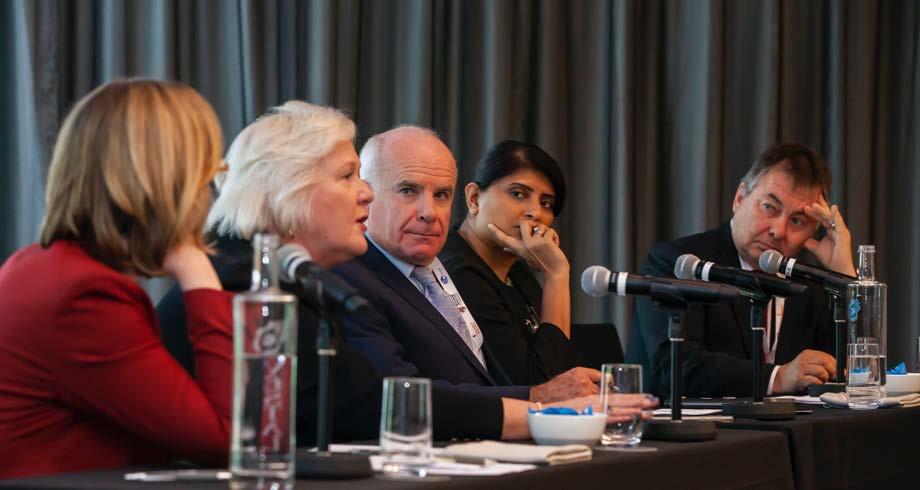
Anne K. Hoffmann (Independent Arbitrator, Dubai), Meg Utterback (Partner, King & Wood Mallesons, New York), John Arthur (Treasurer, CIArb Australia), Sheila Ahuja (Partner, Allen & Overy, Singapore) and The Hon Justice Walter Sofronoff (President of the Queensland Court of Appeal, Brisbane)
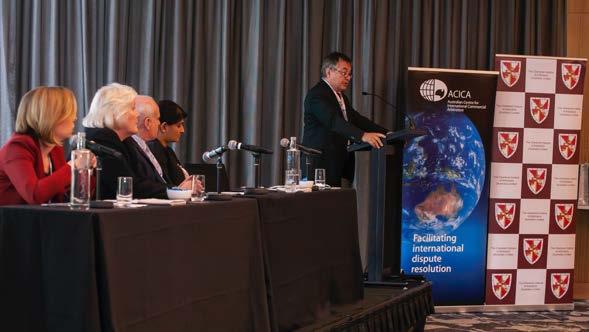
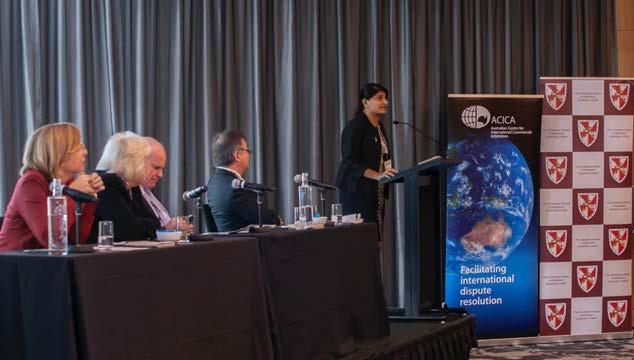
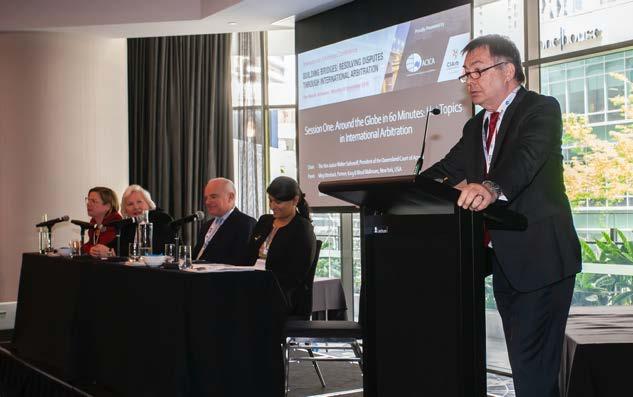
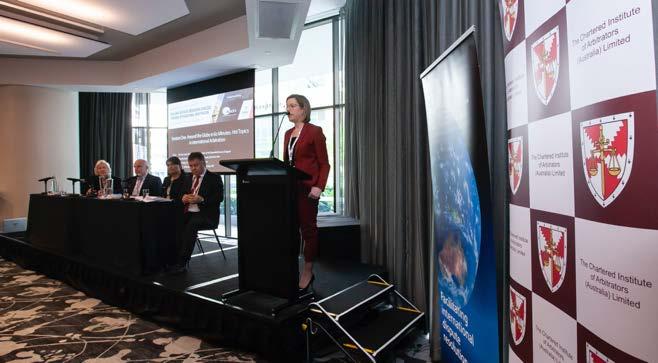

CHAMBERS ASIA-PACIFIC 2018, ARBITRATION (INTERNATIONAL) – ASIA PACIFIC
International arbitration – resolving disputes
THE RIGHT TEAM TO BRING INCISIVE ADVICE
A more globalised world has led to increased cross-border collaboration between corporations, investors and states. Sometimes, these collaborations do not go according to plan. Ashurst fields a leading team of international arbitration experts who work closely with our clients to identify the key issues and provide clear advice and practical commercial solutions. Working at the heart of the international arbitration industry across the world, our team combines local knowledge and global expertise with sector leading experience in energy, resources and infrastructure to provide insightful incisive advice for our clients.
Your arbitration partners
Australia
Jeremy Chenoweth | Brisbane jeremy.chenoweth@ashurst.com Adam Firth | Sydney adam.firth@ashurst.com
Georgia Quick | Sydney georgia.quick@ashurst.com Bill Smith | Sydney bill.smith@ashurst.com Asia
Rob Palmer | Singapore rob.palmer@ashurst.com Ronnie King |Tokyo ronnie.king@ashurst.com
Europe
Tom Cummins | London tom.cummins@ashurst.com
Peter Voss | Sydney peter.voss@ashurst.com James Clarke | Melbourne james.clarke@ashurst.com Catherine Pedler | Perth catherine.pedler@ashurst.com Emma Johnson | London emma.johnson@ashurst.com Matthew Saunders | London matthew.saunders@ashurst.com Emmanuelle Cabrol | Paris emmanuelle.cabrol@ashurst.com
José Antonio Rodríguez | Madrid joseantonio.rodriguez@ashurst.com Cameron Cuffe | Dubai cameron.cuffe@ashurst.com
Dyfan Owen | Dubai dyfan.owen@ashurst.com
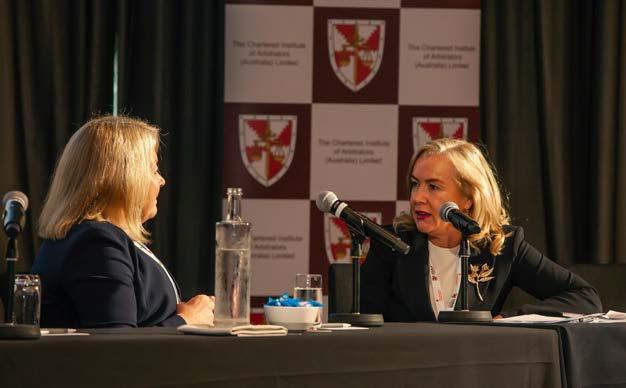
Session Two: In Conversation with Paula Hodges QC
Paula Hodges QC (President of LCIA, Head of Global Arbitration, Herbert Smith Freehills) and Caroline Kenny QC (President of CIArb Australia, Barrister and Independent Arbitrator)
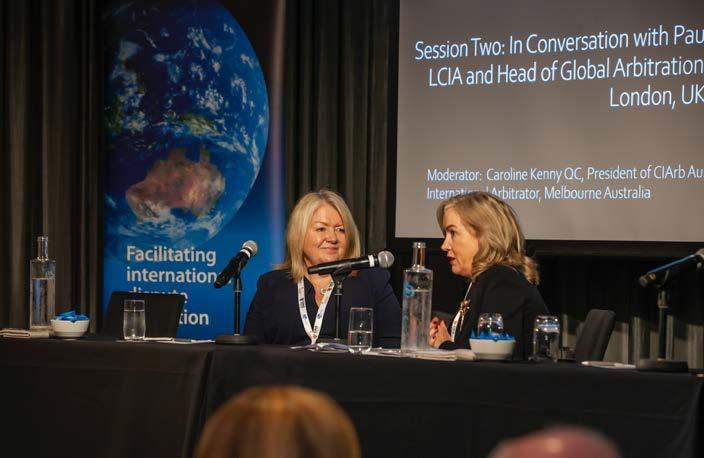

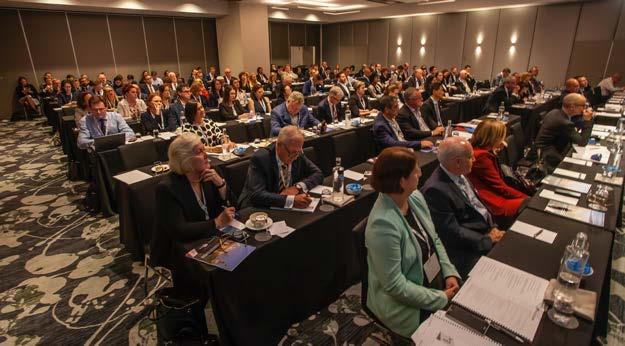




Session Three: Resources and Energy
Kanaga Dharmananda SC (Founding Director of PCERA, Perth), Russell Thirgood (Partner, McCullough Robertson, Brisbane), Georgia Quick (Partner, Ashurst, Sydney) and Jeremy Quan-Sing (Partner, Allens, Perth)
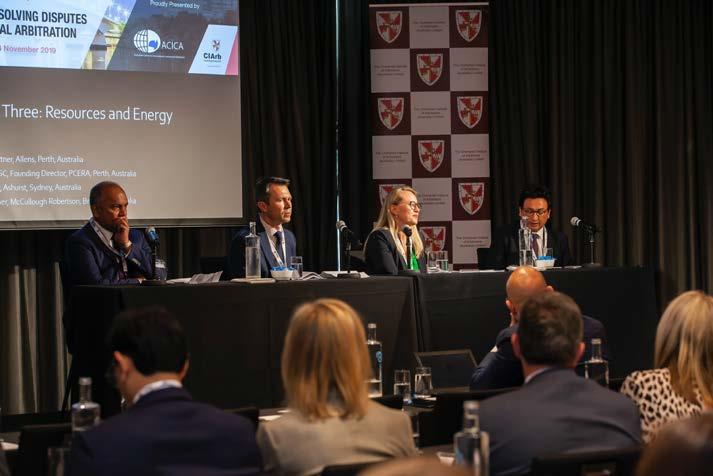


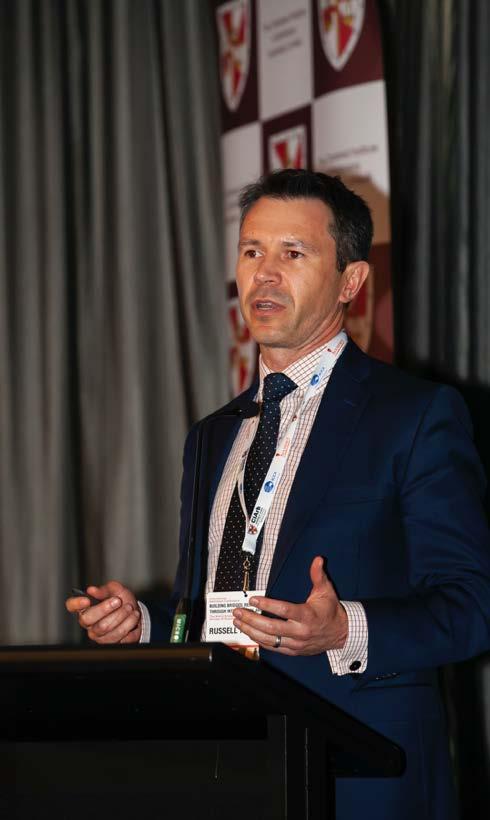
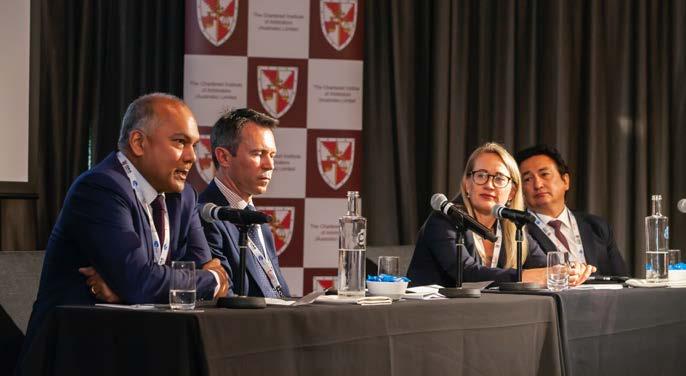
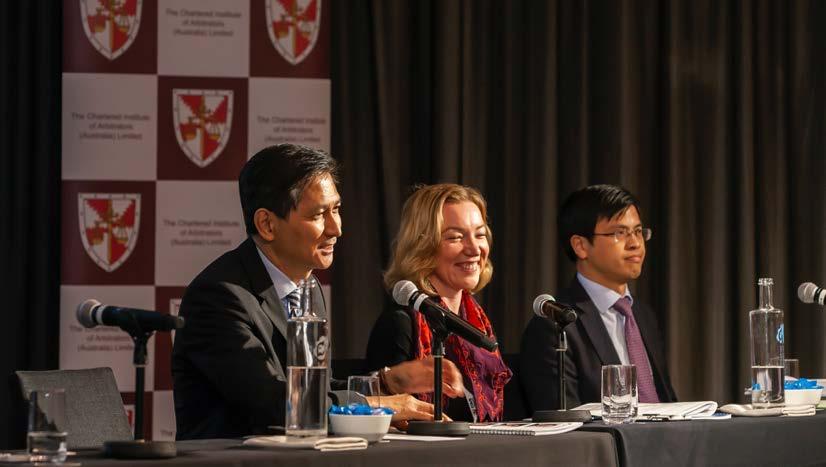
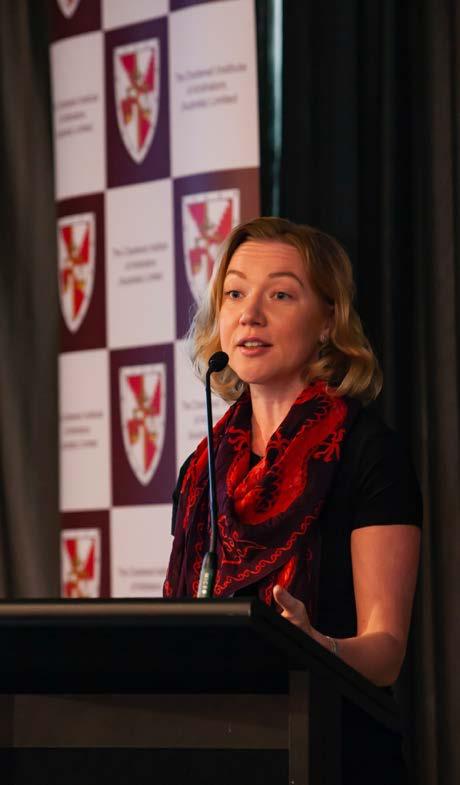
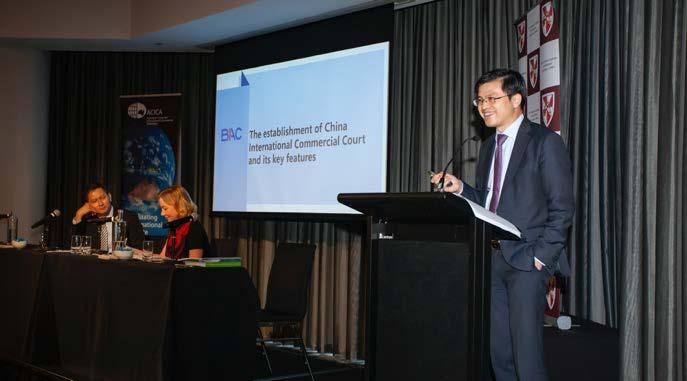
Session Four: China's One Belt, One Road
Chan Leng Sun SC (Deputy Chairman, SIAC & Senior Counsel, Essex Court Chambers Singapore), Olga Boltenko (Partner, Fangda Partners, Hong Kong) and Dr Fuyong Chen (Deputy Secretary-General, BAC/BIAC, Beijing)
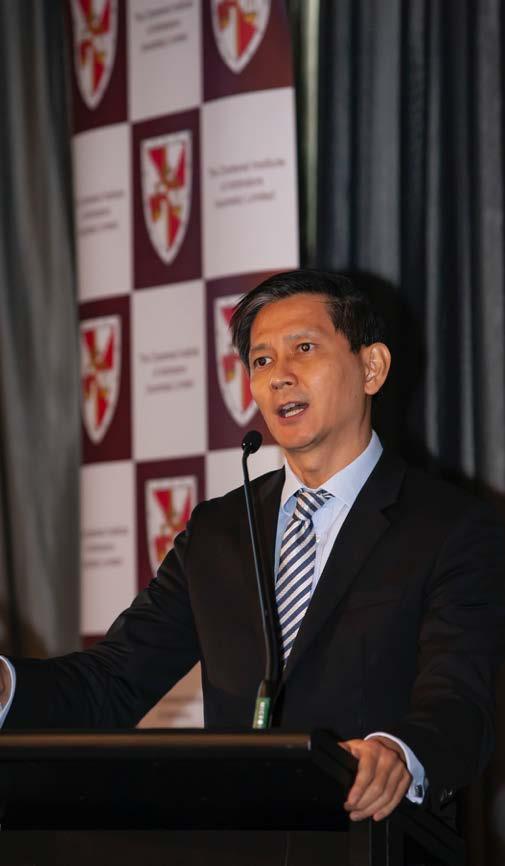
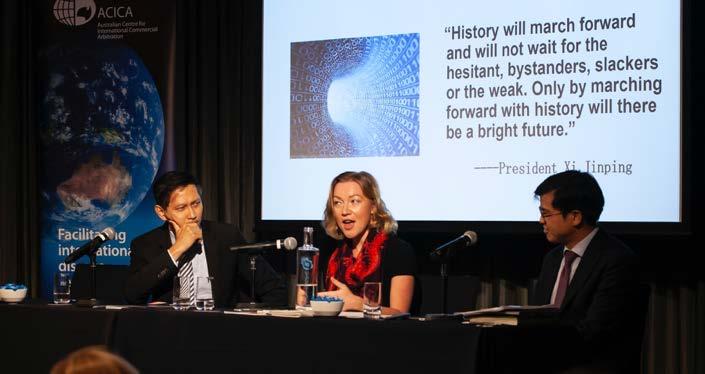
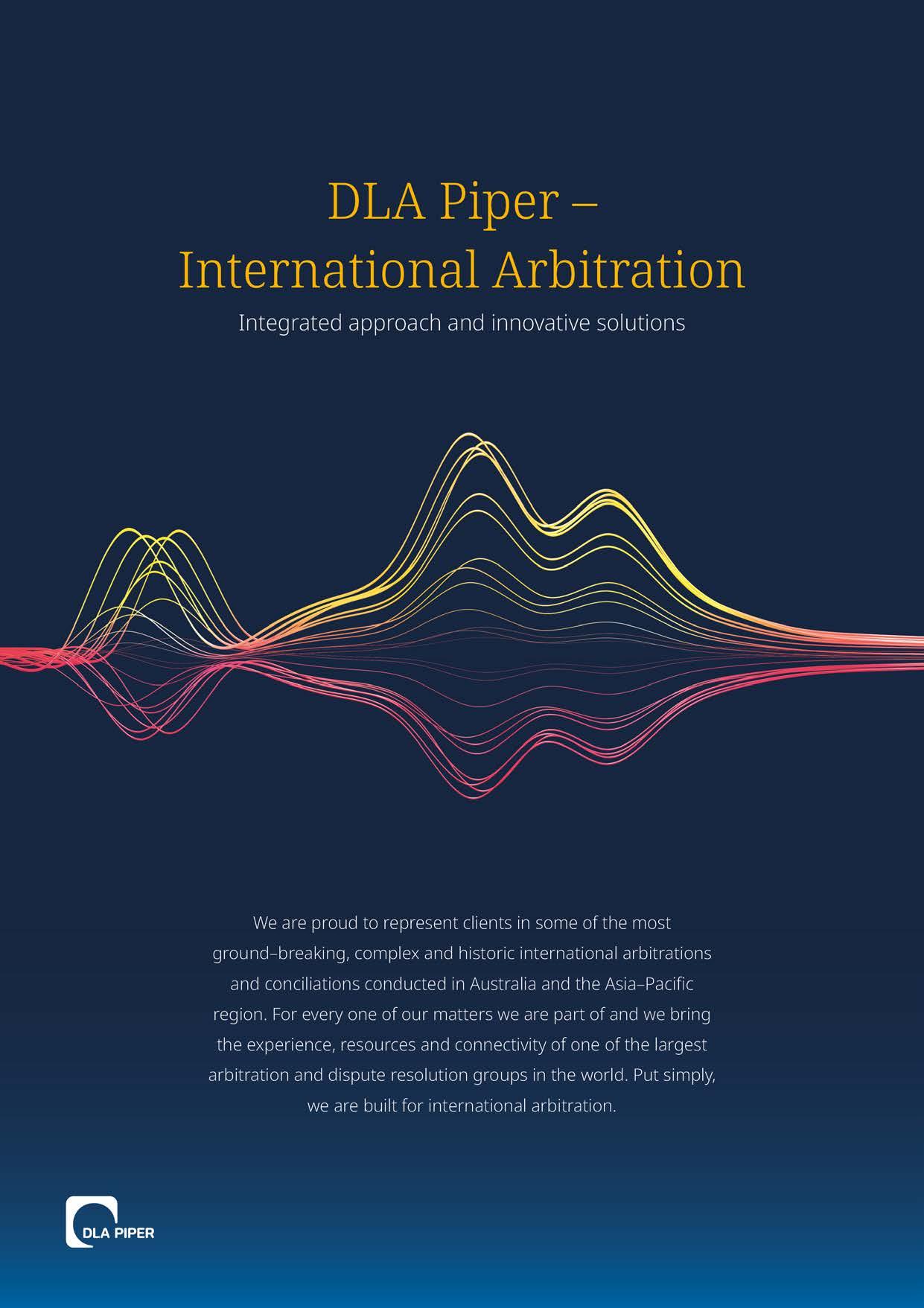
Session Five: Intellectual Property
Dr Rouven F. Bodenheimer C.Arb (Partner, Bodenheimer Herzberg, Cologne, Germany), Prof Jenni Lightowlers (Dean of Law School, Deakin University, Melbourne) and Winnie Tam SC (Des Voeux Chambers, Hong Kong)
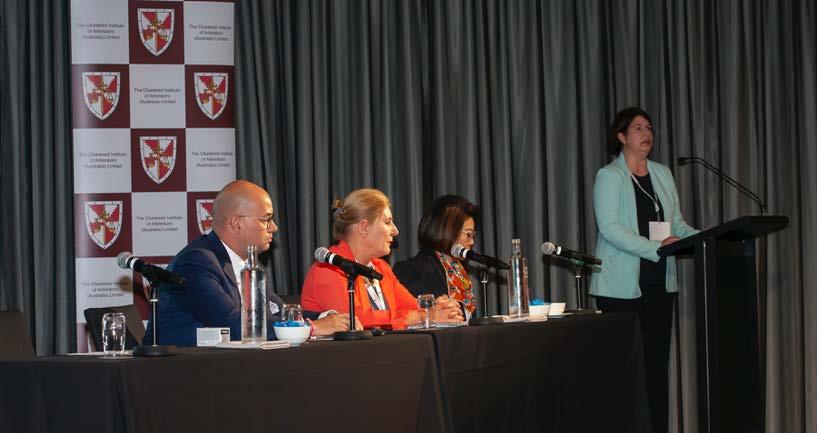
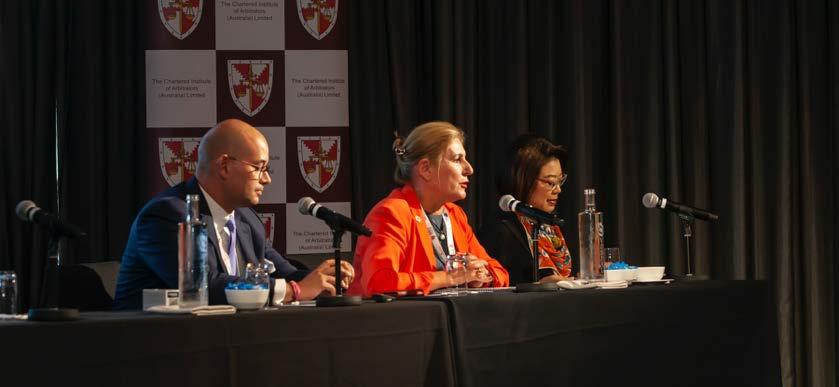
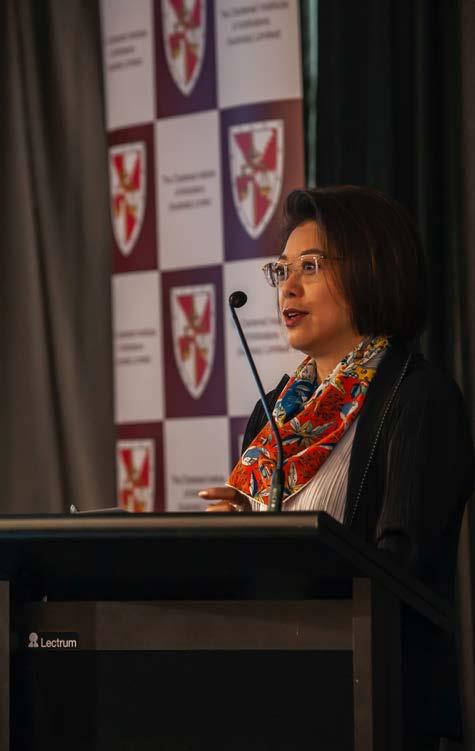
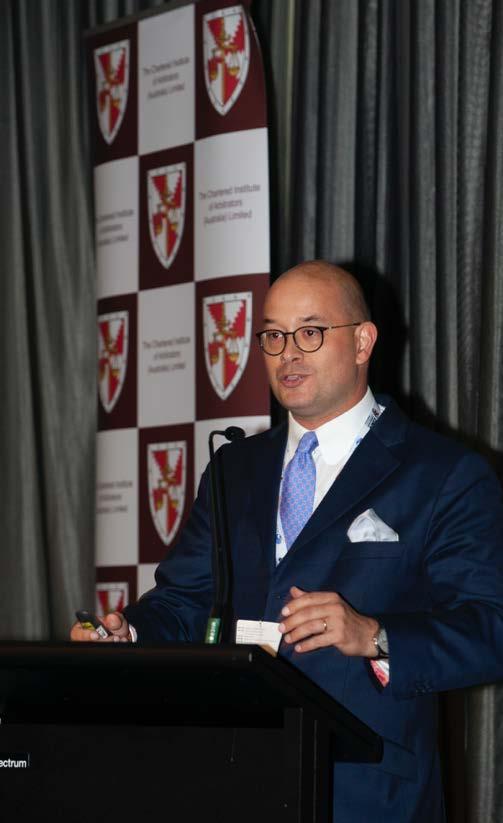
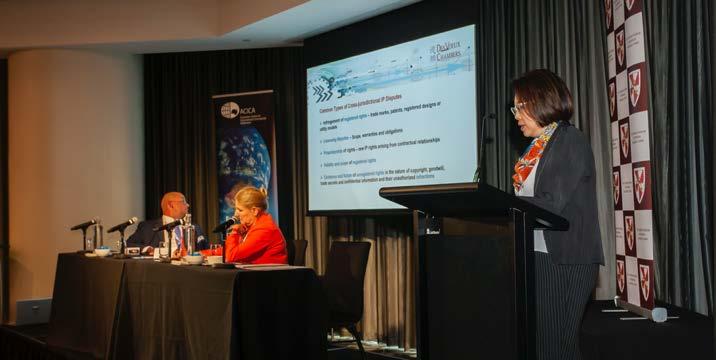












The Power of Together
Asia Pacifi c | Europe | North America | Middle East
Session Six: Mergers and Acquisitions
Justin McDonnell (Partner, King & Wood Mallesons, Brisbane), Paul Sandosham (Chairman, CIArb Singapore and Partner, Clifford Chance, Singapore) and Andrew McDougall (Partner, White & Case, Paris)
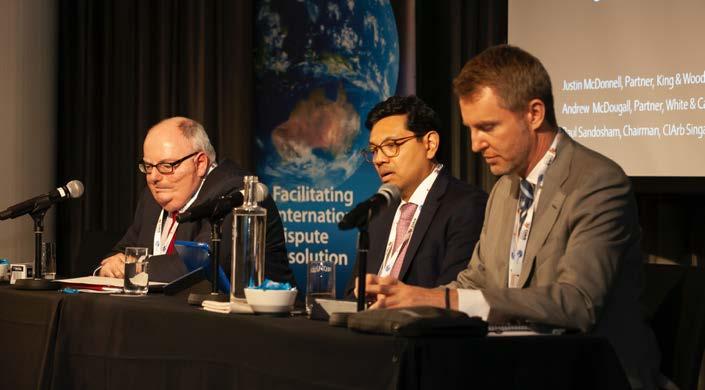

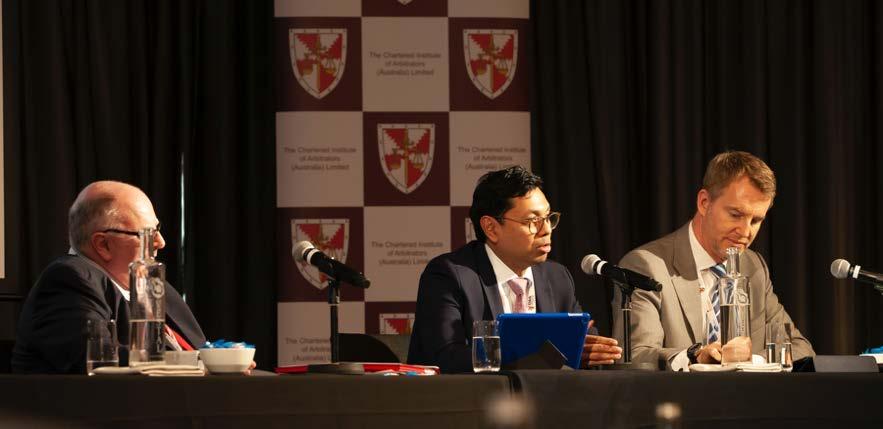
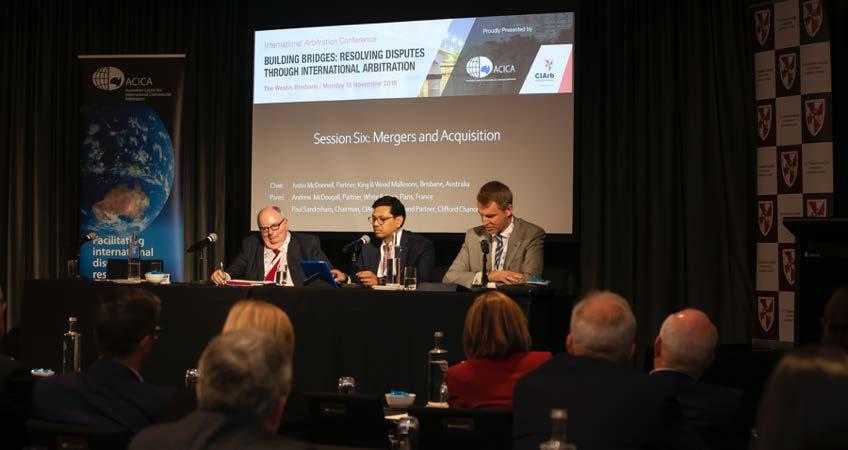
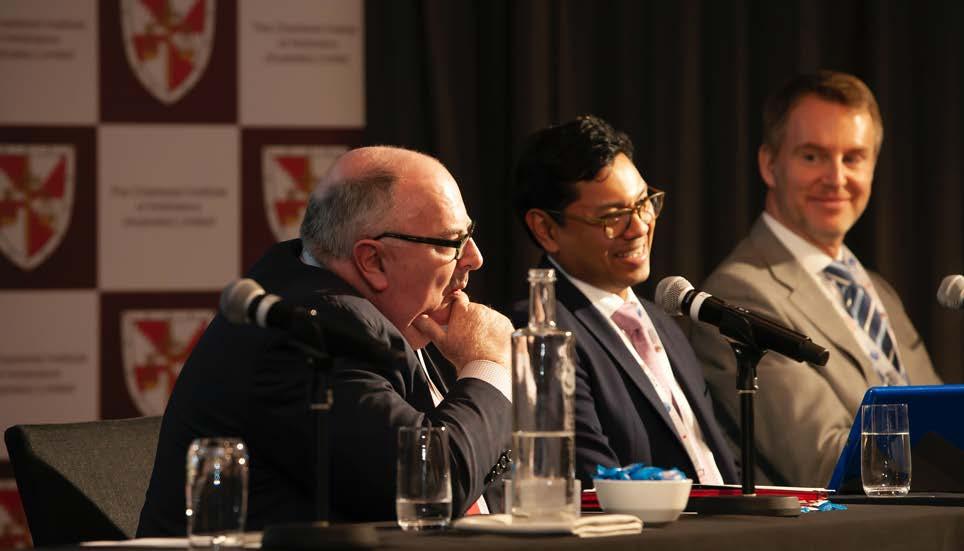
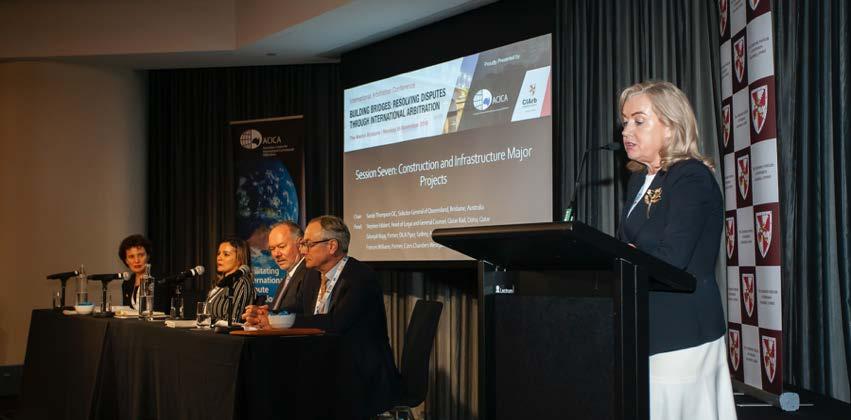
Frances Williams (Partner, Corrs Chambers Westgarth, Brisbane), Gitanjali Bajaj (Partner, DLA Piper, Sydney), Stephen Hibbert (Head of Legal and General Counsel, Qatar Rail, Doha) and Sandy Thompson QC (Solicitor General of Queensland, Brisbane)


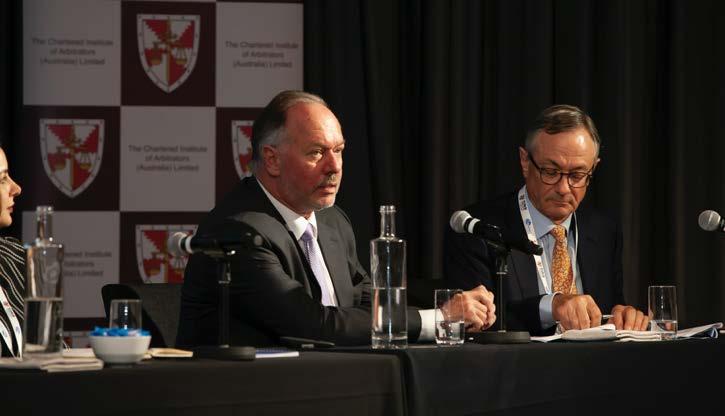
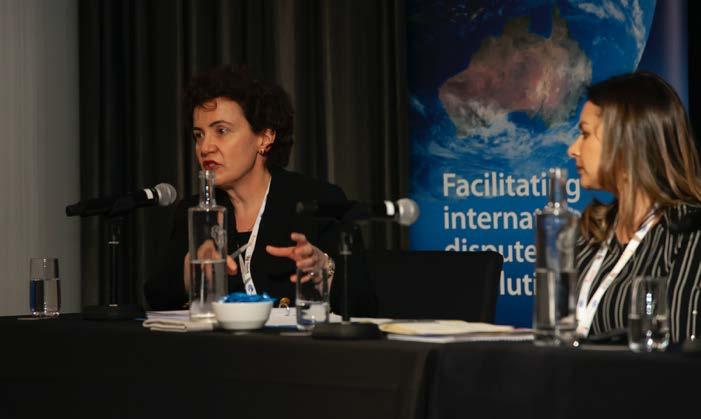
Matthew Gearing QC (Chairperson, HKIAC and Global Co-Head of the International Arbitration Group, Allen & Overy Hong Kong) and Scheherazade Walter (General Manager – Closures, Rio Tinto, Brisbane)
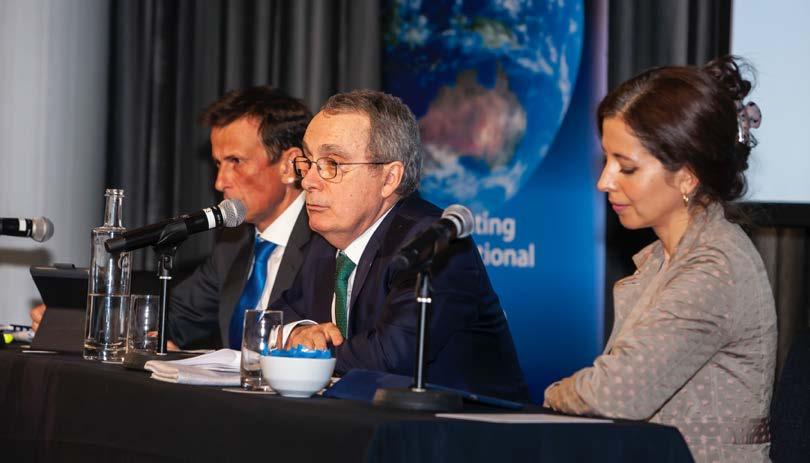
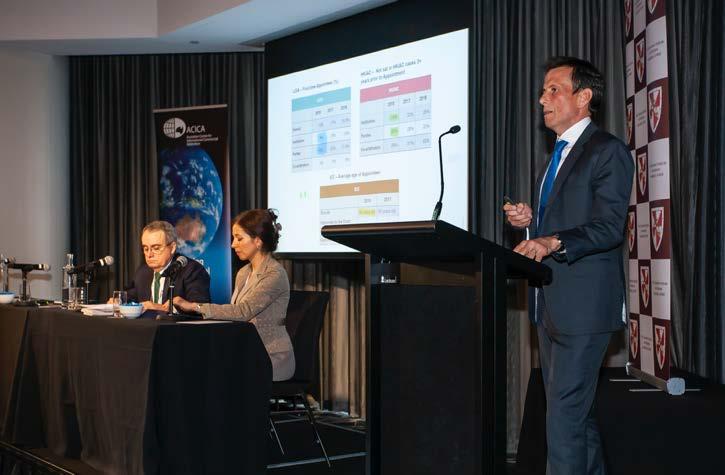
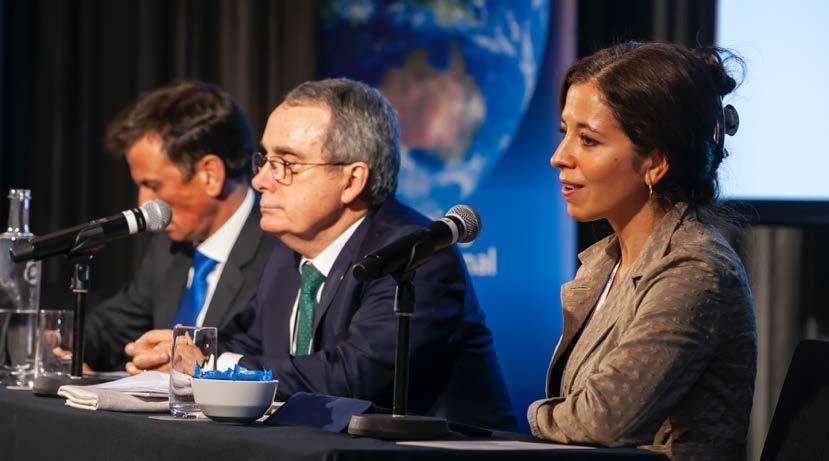
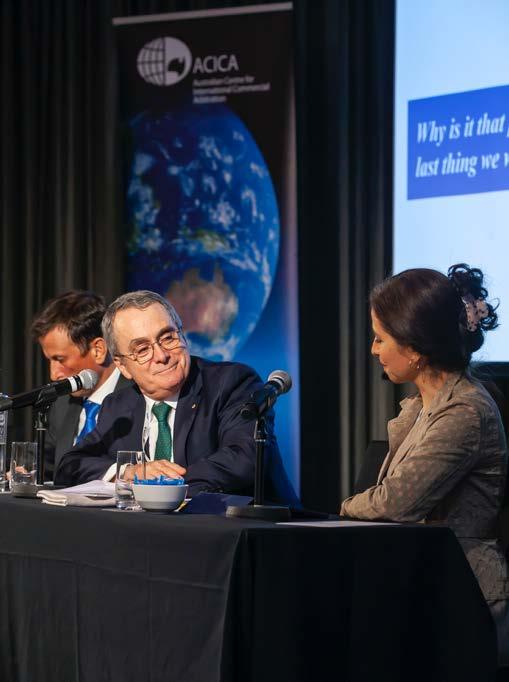
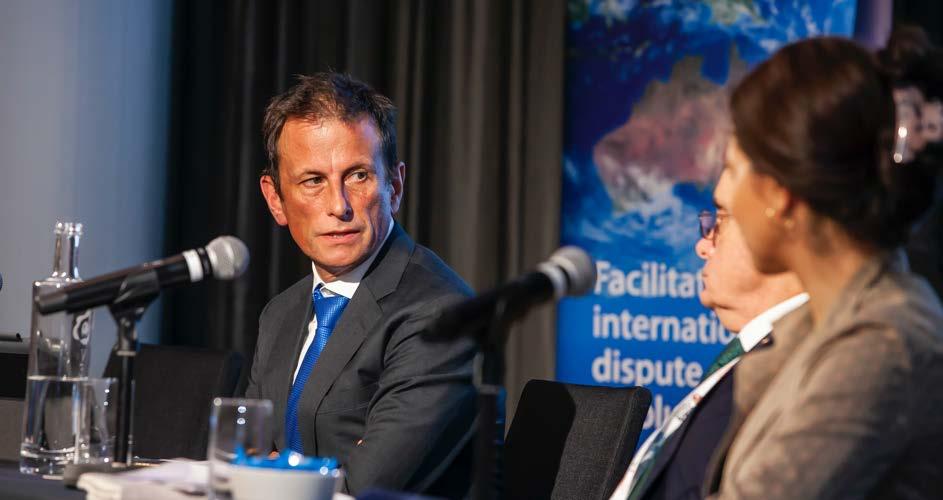
Monday 18 November 2019, The Westin Brisbane
8.30 - 9.00 Registration and Welcome Coffee/Tea 9.00 - 9.05 Welcome and Introduction to the Hon Chief Justice Catherine Holmes, Supreme Court of Queensland Caroline Kenny QC, President of CIArb Australia, Barrister and International Arbitrator, Melbourne, Australia 9.05 - 9.15 Welcome Address The Hon Chief Justice Catherine Holmes, Supreme Court of Queensland, Brisbane, Australia 9.15 - 9.20 Welcome and Introduction to the Hon Justice Patrick Keane AC, High Court of Australia Brenda Horrigan, President of ACICA and Head of International Arbitration Australia, Herbert Smith Freehills, Sydney, Australia 9.20 - 9.40 Keynote Address The Hon Justice Patrick Keane AC, High Court of Australia, Canberra, Australia 9.40 - 10.40 Session One: Around the Globe in 60 Minutes: Hot Topics in International Arbitration Chair: The Hon Justice Walter Sofronoff, President of the Queensland Court of Appeal, Brisbane, Australia Panel: Meg Utterback, Partner, King & Wood Mallesons, New York, USA Sheila Ahuja, Partner, Allen & Overy, Singapore Anne K. Hoffmann, Independent Arbitrator, Dubai, UAE 10.40 - 11.00 Morning Tea 11.00 - 11.30 Session Two: In Conversation with Paula Hodges QC, President of LCIA and Head of Global Arbitration, Herbert Smith Freehills, London, UK Moderator: Caroline Kenny QC, President of CIArb Australia, Barrister and International Arbitrator, Melbourne, Australia 11.30 - 12.30 Session Three: Resources and Energy Disputes Chair: Georgia Quick, Partner, Ashurst, Sydney Australia Panel: Kanaga Dharmananda SC, Founding Director, PCERA, Perth, Australia Hemant Sahai, Founding Partner, HSA Advocates, New Delhi, India Russell Thirgood, Partner, McCullough Robertson, Brisbane, Australia 12.30 - 1.15 Session Four: China’s One Belt, One Road Chair: Chan Leng Sun SC, Deputy Chairman, SIAC & Senior Counsel, Essex Court Chambers Duxton, Singapore Panel: Dr Fuyong Chen, Deputy Secretary-General BAC/ BIAC, Beijing, China Olga Boltenko, Partner, Fangda Partners, Hong Kong
1.15 - 2.15 Lunch: Eden’s Table
2.15 - 3.00 Session Five: China’s One Belt, One Road Chair: Prof Jenni Lightowlers, Dean of Law School, Deakin University, Melbourne, Australia Panel: Winnie Tam SC, Des Voeux Chambers, Hong Kong Dr Rouven F. Bodenheimer C.Arb, Partner, Bodenheimer Herzberg, Cologne, Germany 3.00 - 3.45 Session Six: Mergers and Acquisitions Chair: Justin McDonnell, Partner, King & Wood Mallesons, Brisbane, Australia Panel: Andrew McDougall, Partner, White & Case, Paris, France Paul Sandosham, President, CIArb Singapore and Partner, Clifford Chance, Singapore 3.45 - 4.00 Afternoon Tea
4.00 - 5.00 Session Seven: Construction and Infrastructure Major Projects Chair: Sandy Thompson QC, Solicitor General of Queensland, Brisbane, Australia Panel: Stephen Hibbert, Head of Legal and General Counsel, Qatar Rail, Doha,Qatar Gitanjali Bajaj, Partner, DLA Piper, Sydney, Australia Frances Williams, Partner, Corrs Chambers Westgarth, Brisbane, Australia 5.00 - 5.45 Session Eight: Appointment of Arbitrator - Institution v Corporate Chair: Prof Doug Jones AO, Independent Arbitrator, Sydney, Australia Panel: Matthew Gearing QC, Chairperson, HKIAC and Global Co-Head of the International Arbitration Group, Allen & Overy, Hong Kong Scheherazade Walter, General Manager - Closures, Rio Tinto, Brisbane, Australia 5.45 - 5.55 Closing Address Caroline Kenny QC, President of CIArb Australia Brenda Horrigan, President of ACICA 6.00 - 8.00 Cocktail Networking Reception Welcome Address: The Hon Yvette D’Ath MP, Attorney-General and Minister for Justice, Queensland Government, Brisbane, Australia Presentation of 2019 CIArb Australia Essay Winner: Dr Shane Monks, CIArb Australia Queensland State Convenor and National Councillor, Brisbane, Australia










